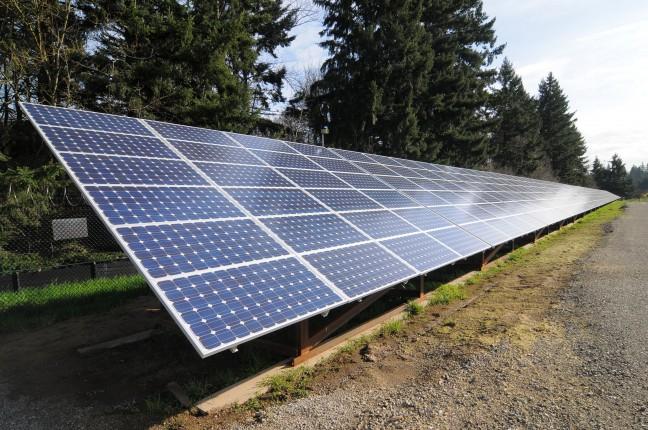In light of the loss of middle-income jobs across the country, The American Jobs Project released a report addressing job opportunities in the advanced energy sector.
“The Wisconsin Jobs Project: A Guide to Creating Jobs in Sensors and Controls for Advanced Energy” suggests that with the right investment and policy-making strategies, Wisconsin could capitalize on its influence in the sensors and controls advanced energy industry to bolster economic growth and support an estimated 44,000 jobs annually.
The American Jobs Project worked in partnership with the Wisconsin Energy Institute at the University of Wisconsin and the Midwest Energy Research Consortium.
According to the report, Wisconsin has faced challenges within its workforce for years, including the increasingly aging-workforce, out-migration and a significant underemployed and long-term unemployed population.
Mary Collins, director of The American Jobs Project, promotes the idea of an advanced energy economy throughout the United States.
“There have been a lot of people in skilled positions, but they are moving towards retirement,” Collins said. “The lack of a skilled workforce and aging population creates a perfect storm.”
Bill would no longer require state agencies to purchase renewable energy
According to the report, advanced energy systems need more extensive monitoring and operational controls to optimize production, minimize energy use and leverage storage.
Sensors and controls are enabling hardware that can be used in a wide range of energy technology to allow for quick responses to changing conditions such as weather patterns, available input resources and energy demand, the report said.
“There is a very high growth potential for careers that involve working with and monitoring this hardware,” Collins said. “The varying levels of educational experience required creates a diversity in the kinds of jobs available, which only supports economic growth.”
The report finds Wisconsin to be “well positioned to tap into market growth in this sector.” Through the sensors and controls manufacturing industry, Wisconsin can capitalize on its many strengths and take advantage of growing opportunities.
If it increases its technology demand, the sensor and control industries would have a projected growth of almost 7 percent annually through 2022, the report said. An estimated $14 billion spent on imported energy could be diverted by deploying sensors and controls for safer and more efficient technologies.
The report also found growing the manufacturing industry would mean at least 209 companies would manufacture sensors and controls. In addition, unique research partnerships dedicated to these technologies would be made.
The report offered a number of state-specific strategies, ranging from workforce development, access to capital and innovation and entrepreneurship.
Providing tax credits for student loan payments to make early college programs more accessible, working to retain college graduates and recruit out of state talent, expanding corporate venture capital, facilitating mentorships for entrepreneurs and expanding the focus on energy programs are just some of the recommendations provided in the report.
While many of these recommendations could have a substantial effect when implemented alone, the hope is for these solutions to be adopted as a package, Gary Radloff, director of Midwest energy policy analysis at Wisconsin Energy Institute, said.
Possible legislation could result from these recommendations as well, Radloff said.
“While [the American Jobs Project] will not be the sole lobbyists of such legislation, there are a number of ways to go about implementing these solutions,” Radloff said. “Possibly, drafting a couple individual bills.”
Student organization seeks to implement solar panels across campus
By taking advantage of these opportunities and implementing the recommendations provided, Wisconsin can forge a path to industry growth in the sensors and controls industry and can help businesses grow, innovate and out-compete regional, national and global competitors, the report said.
Despite current difficulties faced by the Wisconsin workforce, Radloff is confident in the advanced energy industry to turn projections around.
“It doesn’t have to be that way,” Radloff said. “There are many actions that can be taken to prevent further negative trajectories.”














